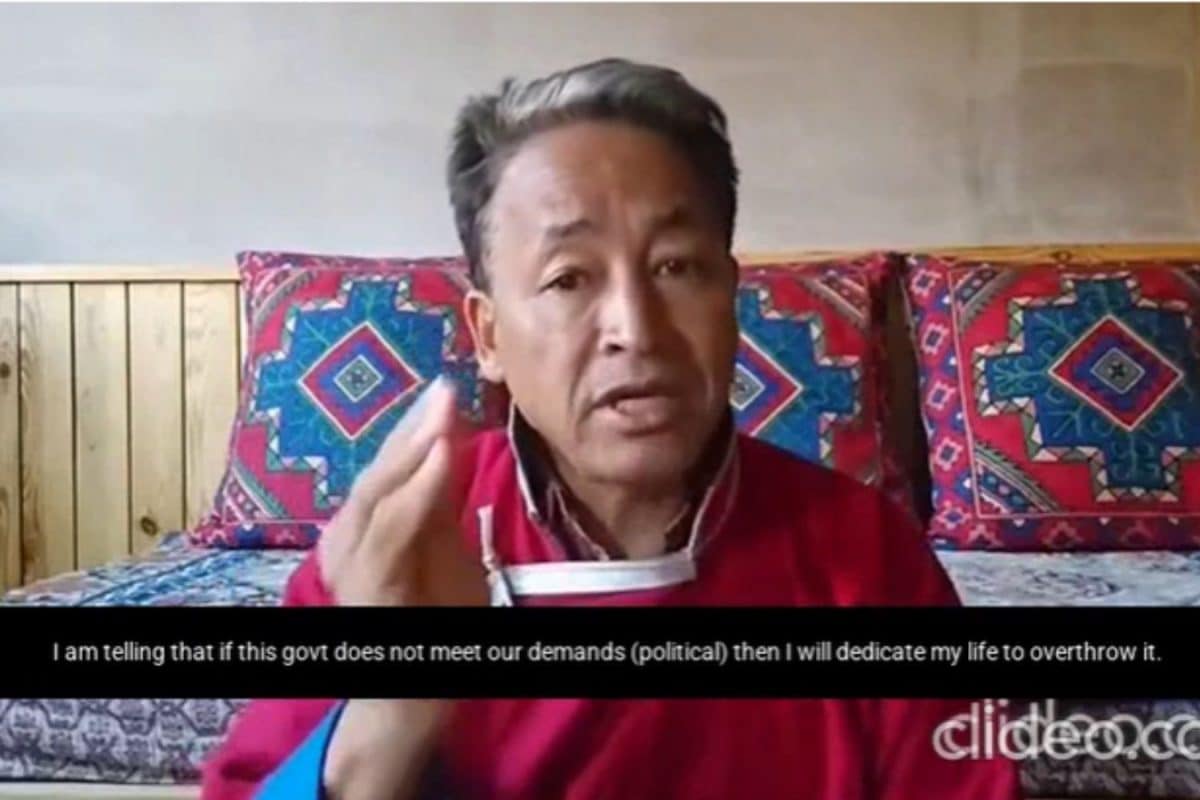

Recent events in Ladakh have brought renewed focus on the region's ongoing demands for statehood and constitutional safeguards, with activist Sonam Wangchuk playing a central role in advocating for these changes. Against this backdrop, government officials have characterized Wangchuk's methods as "provocative," particularly in light of his warnings about potential self-immolation if the demands are not met.
Ladakh, which was carved out as a Union Territory in 2019 following the abrogation of Article 370, has since witnessed persistent calls for statehood and the implementation of the Sixth Schedule of the Constitution. These demands are rooted in concerns about protecting the region's unique cultural identity, preserving its fragile ecosystem, and ensuring democratic rights for its residents.
Sonam Wangchuk, a prominent education reformer and environmentalist, has been at the forefront of these agitations. He has consistently voiced concerns about environmental degradation and the potential for exploitation of Ladakh's resources if adequate safeguards are not put in place. Wangchuk has stressed the importance of empowering the local population to make decisions about the region's development, cautioning against a model where development is imposed from outside without considering the needs and aspirations of the people.
In a recent demonstration of his commitment to the cause, Wangchuk participated in a three-day hunger strike in Kargil, organized jointly by the Kargil Democratic Alliance (KDA) and the Leh Apex Body (LAB). These organizations have been leading the movement for statehood and Sixth Schedule status for the past several years, holding multiple rounds of talks with the central government. However, progress has been slow, and frustration is growing among the people of Ladakh.
During the hunger strike, Wangchuk emphasized the unity between the people of Kargil and Leh in their demand for statehood and constitutional rights. He has also stated that they are prepared to intensify their movement, including marching to Delhi again if necessary. Wangchuk has been critical of the government's approach, arguing that while development is important, it should not come at the cost of neglecting the rights and voices of the local population. He has drawn a parallel with Tibet, where, according to him, development has not necessarily translated into the happiness and well-being of the people.
The demands for statehood and Sixth Schedule status are not new. Leaders from Ladakh have pointed out that if states like Sikkim and Mizoram could be granted statehood, the same should apply to Ladakh, which has a larger population and greater strategic importance. The Sixth Schedule is seen as a crucial mechanism for protecting the rights of tribal communities and ensuring their participation in decision-making processes related to land, resources, and cultural identity.
As the agitation continues, there is increasing pressure on the central government to address the concerns of the people of Ladakh. The KDA and LAB have warned that they will intensify their protests if the government continues to delay talks and fails to show seriousness in addressing their demands. The situation remains tense, with the government's characterization of Wangchuk's methods as "provocative" adding another layer of complexity to the issue. It remains to be seen how the government will respond to the growing demands for statehood and constitutional safeguards in Ladakh.